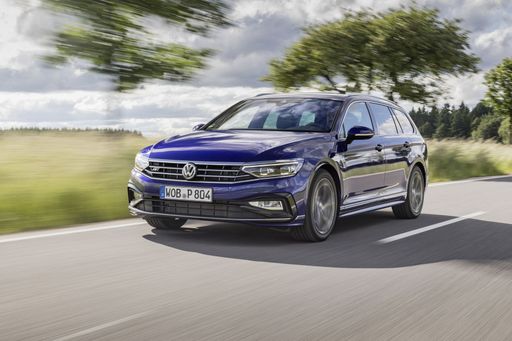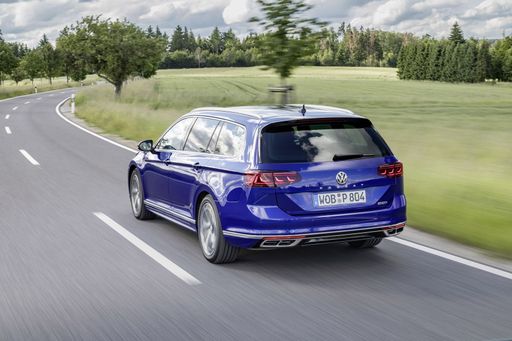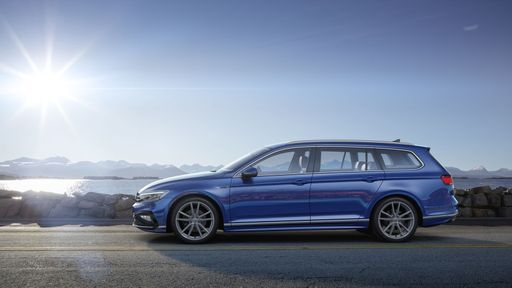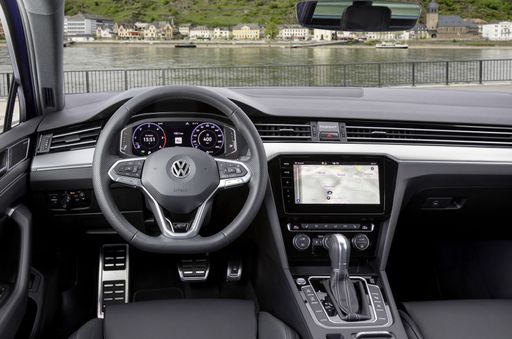Hyundai Kona vs VW Passat – Which car suits you better?
Both models have their strengths – but which one suits you more?
Compare performance, efficiency, price and space directly: Hyundai Kona or VW Passat?
Costs and Efficiency:
Price and efficiency are often the first things buyers look at. Here it becomes clear which model has the long-term edge – whether at the pump, the plug, or in purchase price.
Hyundai Kona has a clearly advantage in terms of price – it starts at 23100 £, while the VW Passat costs 35700 £. That’s a price difference of around 12677 £.
Fuel consumption also shows a difference: VW Passat manages with 1.20 L and is therefore convincingly more efficient than the Hyundai Kona with 4.60 L. The difference is about 3.40 L per 100 km.
As for range, the Hyundai Kona performs significantly better – achieving up to 514 km, about 379 km more than the VW Passat.
Engine and Performance:
Power, torque and acceleration say a lot about how a car feels on the road. This is where you see which model delivers more driving dynamics.
When it comes to engine power, the VW Passat has a a bit edge – offering 272 HP compared to 218 HP. That’s roughly 54 HP more horsepower.
In acceleration from 0 to 100 km/h, the VW Passat is noticeable quicker – completing the sprint in 5.80 s, while the Hyundai Kona takes 7.80 s. That’s about 2 s faster.
In terms of top speed, the VW Passat performs to a small extent better – reaching 250 km/h, while the Hyundai Kona tops out at 210 km/h. The difference is around 40 km/h.
There’s also a difference in torque: VW Passat pulls evident stronger with 400 Nm compared to 265 Nm. That’s about 135 Nm difference.
Space and Everyday Use:
Whether family car or daily driver – which one offers more room, flexibility and comfort?
Both vehicles offer seating for 5 people.
In curb weight, Hyundai Kona is to a small extent lighter – 1370 kg compared to 1573 kg. The difference is around 203 kg.
In terms of boot space, the VW Passat offers clearly perceptible more room – 690 L compared to 466 L. That’s a difference of about 224 L.
In maximum load capacity, the VW Passat performs noticeable better – up to 1920 L, which is about 620 L more than the Hyundai Kona.
When it comes to payload, VW Passat a bit takes the win – 577 kg compared to 490 kg. That’s a difference of about 87 kg.
Who comes out on top?
Overall, the VW Passat shows itself to be outperforms in nearly all aspects and secures the title of DriveDuel Champion.
It convinces with the more balanced overall package and proves to be the more versatile choice for everyday use.
 @ Volkswagen AG / VW Media
@ Volkswagen AG / VW Media
VW Passat
Hyundai Kona
The Hyundai Kona wears its personality on the outside with bold styling and sprightly handling that turns city driving into something a little more fun than a commute. It blends practical space, modern tech and sensible running costs into a compact, stylish package — a smart pick if you want flair without paying luxury prices.
details @ Hyundai Motor Company
@ Hyundai Motor Company
 @ Hyundai Motor Company
@ Hyundai Motor Company
 @ Hyundai Motor Company
@ Hyundai Motor Company
 @ Hyundai Motor Company
@ Hyundai Motor Company
VW Passat
The VW Passat is the grown-up family car that gets the basics absolutely right — roomy, comfortable and built to handle weekday commutes and weekend getaways without fuss. It won't set your pulse racing, but its calm composure and sensible packaging make it boring in the best possible way: a dependable, no‑drama choice for buyers who value practicality over flash.
details @ Volkswagen AG / VW Media
@ Volkswagen AG / VW Media
 @ Volkswagen AG / VW Media
@ Volkswagen AG / VW Media
 @ Volkswagen AG / VW Media
@ Volkswagen AG / VW Media
 @ Volkswagen AG / VW Media
@ Volkswagen AG / VW Media
 @ Hyundai Motor Company
@ Hyundai Motor Company
|
 @ Volkswagen AG / VW Media
@ Volkswagen AG / VW Media
|
|
|
|
Costs and Consumption |
|
|---|---|
|
Price
23100 - 41600 £
|
Price
35700 - 58500 £
|
|
Consumption L/100km
4.6 - 7 L
|
Consumption L/100km
1.2 - 8 L
|
|
Consumption kWh/100km
14.6 - 16.8 kWh
|
Consumption kWh/100km
-
|
|
Electric Range
377 - 514 km
|
Electric Range
124 - 135 km
|
|
Battery Capacity
1.3 - 65.4 kWh
|
Battery Capacity
19.70 kWh
|
|
co2
0 - 163 g/km
|
co2
28 - 181 g/km
|
|
Fuel tank capacity
38 - 47 L
|
Fuel tank capacity
45 - 66 L
|
Dimensions and Body |
|
|---|---|
|
Body Type
SUV
|
Body Type
Estate
|
|
Seats
5
|
Seats
5
|
|
Doors
5
|
Doors
5
|
|
Curb weight
1370 - 1773 kg
|
Curb weight
1573 - 1858 kg
|
|
Trunk capacity
466 L
|
Trunk capacity
510 - 690 L
|
|
Length
4350 - 4385 mm
|
Length
4917 mm
|
|
Width
1825 mm
|
Width
1849 mm
|
|
Height
1580 - 1585 mm
|
Height
1521 mm
|
|
Max trunk capacity
1300 L
|
Max trunk capacity
1770 - 1920 L
|
|
Payload
420 - 490 kg
|
Payload
501 - 577 kg
|
Engine and Performance |
|
|---|---|
|
Engine Type
Electric, Petrol, Full Hybrid
|
Engine Type
Petrol, Petrol MHEV, Diesel, Plugin Hybrid
|
|
Transmission
Automatic, Manuel
|
Transmission
Automatic
|
|
Transmission Detail
Reduction Gearbox, Manual Gearbox, Dual-Clutch Automatic
|
Transmission Detail
Dual-Clutch Automatic
|
|
Drive Type
Front-Wheel Drive, All-Wheel Drive
|
Drive Type
All-Wheel Drive, Front-Wheel Drive
|
|
Power HP
115 - 218 HP
|
Power HP
122 - 272 HP
|
|
Acceleration 0-100km/h
7.8 - 11.9 s
|
Acceleration 0-100km/h
5.8 - 10.7 s
|
|
Max Speed
162 - 210 km/h
|
Max Speed
212 - 250 km/h
|
|
Torque
200 - 265 Nm
|
Torque
250 - 400 Nm
|
|
Number of Cylinders
3 - 4
|
Number of Cylinders
4
|
|
Power kW
85 - 160 kW
|
Power kW
90 - 200 kW
|
|
Engine capacity
998 - 1598 cm3
|
Engine capacity
1498 - 1984 cm3
|
General |
|
|---|---|
|
Model Year
2024 - 2025
|
Model Year
2024 - 2025
|
|
CO2 Efficiency Class
A, D, C, E, F
|
CO2 Efficiency Class
G, D, E, B
|
|
Brand
Hyundai
|
Brand
VW
|
Is the Hyundai Kona offered with different drivetrains?
Available configurations include Front-Wheel Drive or All-Wheel Drive.
The prices and data displayed are estimates based on German list prices and may vary by country. This information is not legally binding.
